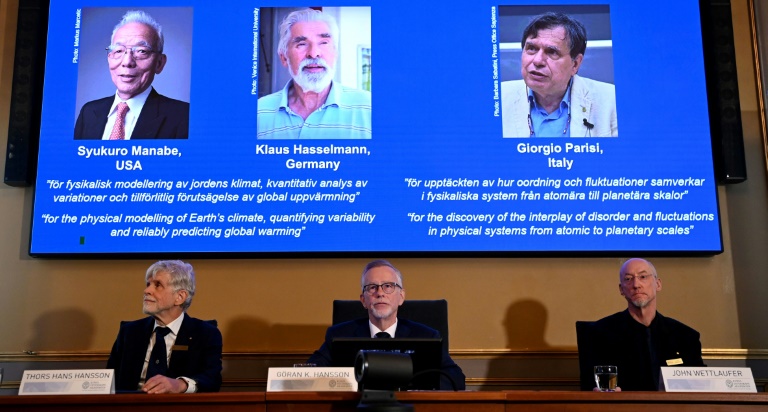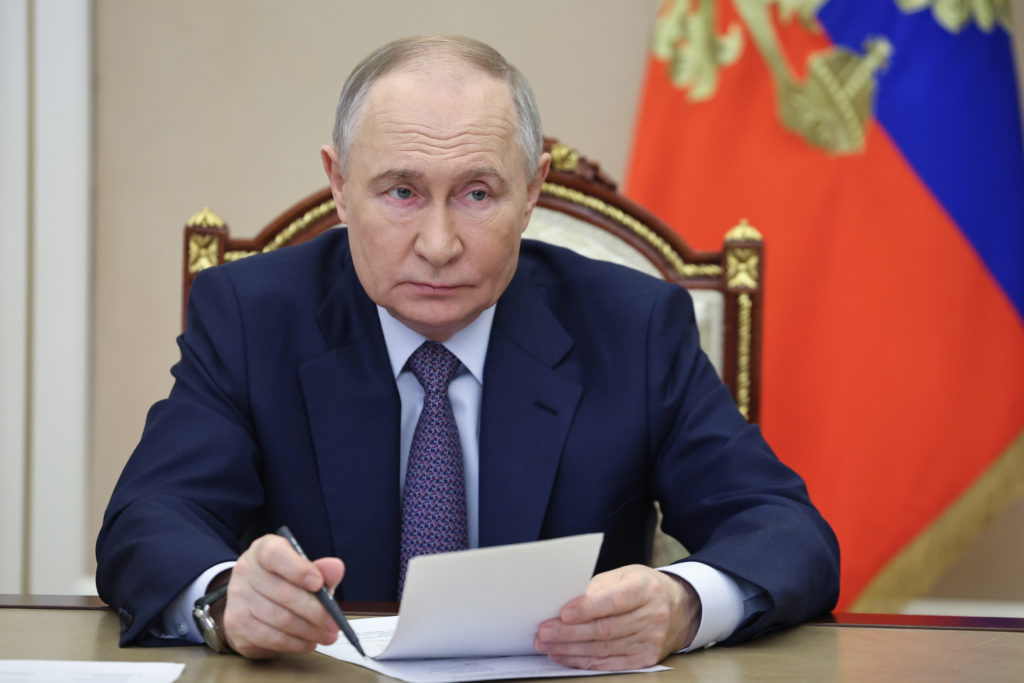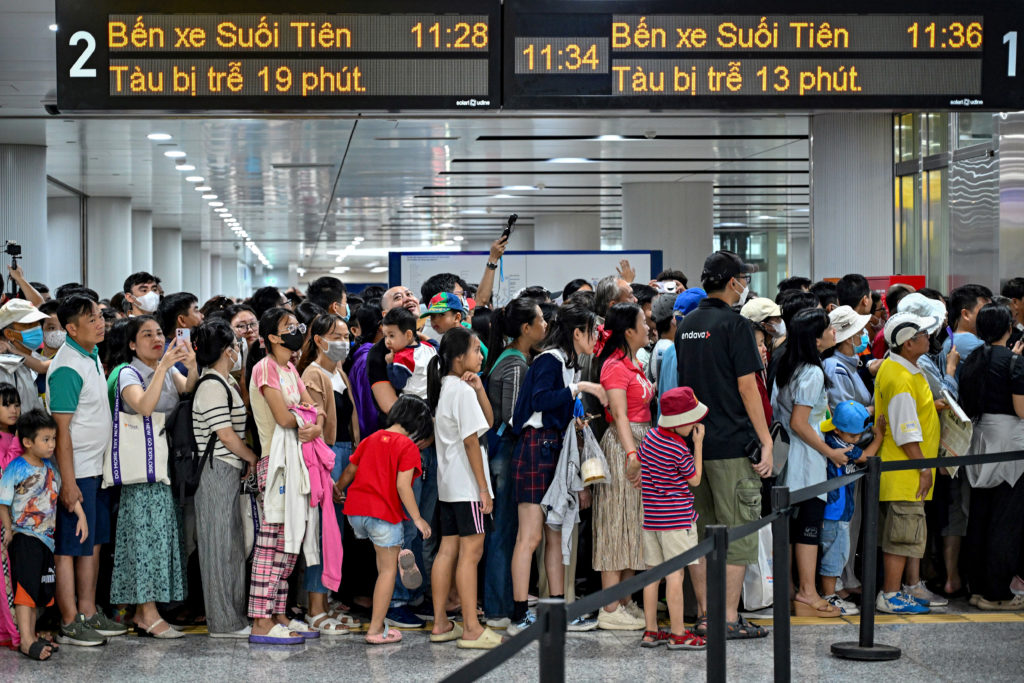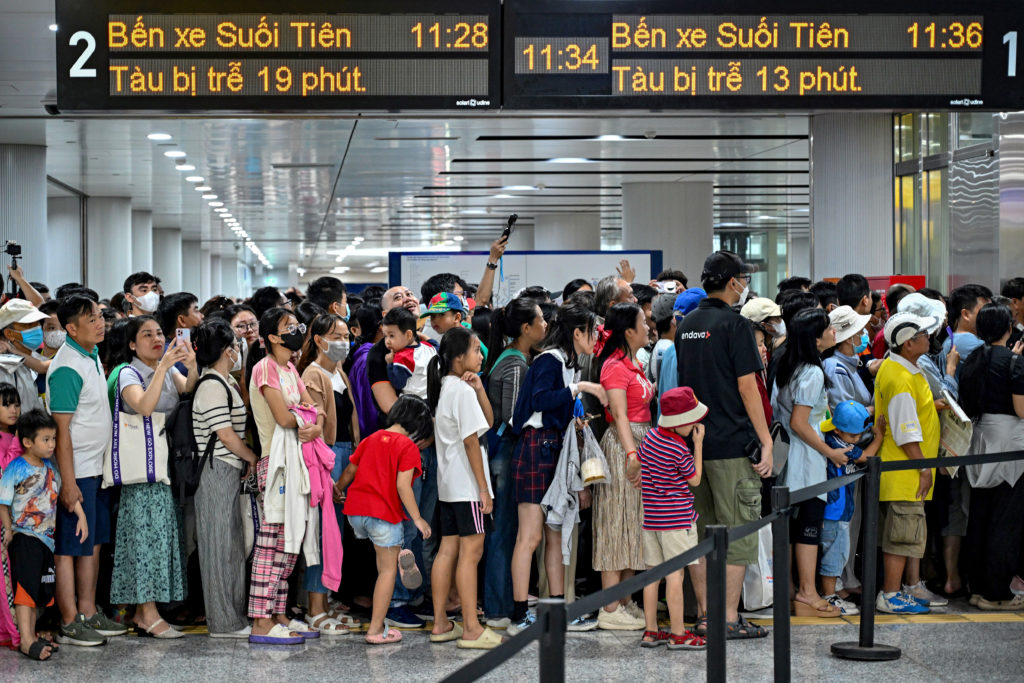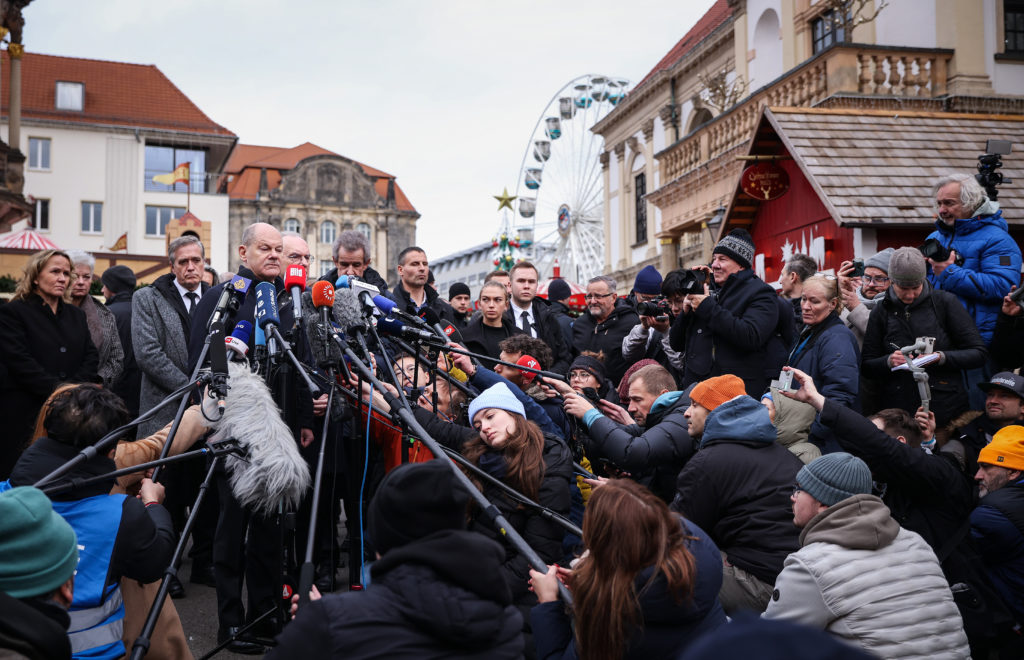US-Japanese scientist Syukuro Manabe, Klaus Hasselmann of Germany and Giorgio Parisi of Italy on Tuesday won the Nobel Physics Prize for climate models and the understanding of physical systems, the jury said.
The Nobel committee said it was sending a message with its prize announcement just weeks before the COP26 climate summit in Glasgow, as the rate of global warming sets off alarm bells around the world.
“The world leaders that haven’t got the message yet, I’m not sure they will get it because we are saying it. But … what we are saying is that the modelling of climate is solidly based in physics theory,” said chair of the Nobel Committee for Physics, Thor Hans Hansson.
Manabe, 90, and Hasselmann, 89, share one half of the 10-million-kronor ($1.1-million, one-million-euro) prize for their research on climate models, while Parisi, 73, won the other half for his work on the interplay of disorder and fluctuations in physical systems.
“Syukuro Manabe and Klaus Hasselmann laid the foundation of our knowledge of the Earth’s climate and how humanity influences it,” the Nobel Committee said.
“Giorgio Parisi is rewarded for his revolutionary contributions to the theory of disordered materials and random processes,” it added.
“The discoveries being recognised this year demonstrate that our knowledge about the climate rests on a solid scientific foundation, based on a rigorous analysis of observations,” Hansson said.
Manabe is affiliated with Princeton University in the US, while Hasselmann is a professor at the Max Planck Institute for Meteorology in Hamburg.
Parisi, who also won the prestigious Wolf Prize in February, is a professor at Sapienza University of Rome.
– ‘We have to act now’ –
Working in the 1960s, Manabe showed how levels of carbon dioxide in the atmosphere corresponded to increased Earth surface temperatures.
He was influential in developing the physical models of Earth’s climate and worked on how exactly the heat energy received by Earth from the Sun radiates back into the atmosphere.
Hasselmann was credited for working out how climate models can remain reliable despite sometimes chaotic variation in weather trends.
The Committee praised his identification of climate “fingerprints” caused by both natural and human activities and how much climate change can be contributed solely to man-made emissions.
Parisi was honoured for his work in the 1980s that was said by the Committee to be “among the most important contributions” to the theory of complex systems.
His work made it possible for physicists to understand apparently entirely random materials, with wide-ranging applications including mathematics, biology, and machine learning.
Linking Manabe and Hasselman’s work to Parisi’s, the Nobel Foundation said this year’s prize “recognises new methods for describing complex systems and predicting their long-term behaviour.”
“One complex system of vital importance to humankind is Earth’s climate.”
“It’s clear that for future generations, we have to act now in a very fast way,” Parisi told reporters during a live telephone interview when asked if he had a message for the COP26 summit.
– Prize ceremony cancelled –
In Geneva, the head of the World Meteorological Organization, Petteri Taalas, said the prize demonstrates that “climate science is highly valued, and it should be highly valued.”
Tuesday’s Physics Prize was the first Nobel in Physics or Chemistry to honour climate work since the 1995 Chemistry Prize was awarded for research into Earth’s ozone hole.
Kenyan environmentalist Wangari Maathai won the 2004 Peace Prize for her work against deforestation in Africa, and former US vice president Al Gore and the UN’s IPCC won in 2007 for raising awareness of climate change.
In 2018, economist William Nordhaus was honoured “for integrating climate change into long-run macroeconomic analysis”.
The Physics Prize was the second Nobel of the season after the medicine prize on Monday went to a US duo for discoveries on receptors for temperature and touch.
The award for chemistry will be announced on Wednesday, followed by the much-anticipated prizes for literature on Thursday and peace on Friday before the economics prize winds things up on Monday, October 11.
The Nobel Foundation has already announced that the glittering prize ceremony and banquet held in Stockholm in December for the science and literature laureates will not happen this year due to the pandemic.
Like last year, laureates will receive their awards in their home countries.
A decision has yet to be made about the lavish Peace Prize ceremony held in Oslo on the same day.

